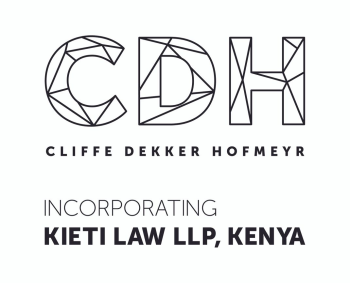On September 11 2015 the South African Revenue Service (SARS) released Binding Private Ruling 205, which considered the meaning of 'controlled group company' and 'equity share' in terms of Section 12J of the Income Tax Act (58/1962).
An approved venture capital company in terms of Section 12J of the Income Tax Act and two resident companies (Company A and Company B) proposed to incorporate a new company, RentalCo. RentalCo would lease certain movable goods under operating leases to existing clients of Company A.
The venture capital company would subscribe for 20% of the issued shares in RentalCo, but at a disproportionate subscription price of 75% of the issued share capital of RentalCo. The venture capital company would be issued with class A ordinary shares. Company A and Company B would subscribe for class B and class C ordinary shares respectively, totalling 80% of the issued shares in RentalCo.
The class A ordinary shares would entitle the vencture capital company to a first distribution of profits or capital equal to the capital invested and a return of prime plus 2%. Once the distributions in respect of the class A shares had been settled, the holders of the class B and C shares would be entitled to a second distribution of profits or capital equal to prime plus 2% in proportion to their respective shareholding. Thereafter, all ordinary shares would rank pari passu (on equal footing). All ordinary shares would at all times carry equal voting rights.
The venture capital company intended to enter into similar transactions in future with partners whereby companies would be incorporated for purposes of leasing goods to clients. The venture capital company would always hold less than 70% of the shares in issue because a 'qualifying company' for purposes of Section 12J of the Income Tax Act may not be a controlled group company in relation to the venture capital company. The venture capital company would always subscribe for cash.
SARS ruled that the class A ordinary shares would constitute 'equity shares' for purposes of the definition of 'qualifying share' in Section 12J(1) of the Income Tax Act. In other words, they are not shares that "neither as respects dividends nor as respects returns of capital, carr[y] any right to participate beyond a specified amount in a distribution".
SARS also ruled that the company into which the venture capital company would invest (ie, RentalCo) would not constitute a 'controlled group company' for purposes of the definition of 'qualifying company' in Section 12J(1) of the Income Tax Act provided that the venture capital company held less than 70% of the number of equity shares in issue. This would be so regardless of whether the venture capital company invested more than 70% of the share capital.
The company in which the venture capital company would invest would not be a 'qualifying company', as defined, if the sum of the investment income derived during any year of assessment exceeded 20% of gross income. Investment income includes rental from immovable property, but not movable goods. SARS therefore ruled that the rental income received by the company into which the venture capital company would invest would not constitute investment income as defined in Section 12E(4)(c) of the Income Tax Act.
For further information on this topic please contact Heinrich Louw at Cliffe Dekker Hofmeyr by telephone (+27 11 562 1000) or email ([email protected]). The Cliffe Dekker Hofmeyr website can be accessed at www.cliffedekkerhofmeyr.com.
This article was first published by the International Law Office, a premium online legal update service for major companies and law firms worldwide. Register for a free subscription.



